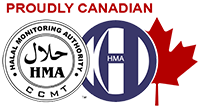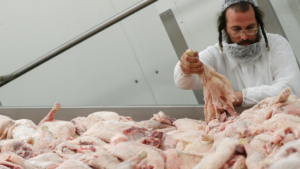In recent years, halal meals have become more widespread in major European and North American fast-food chains, and supermarkets and food firms have jumped on board to gain a competitive edge. Due to technological advancements, many customers now anticipate more openness in the food production process. Many people are increasingly tracking their food “from farm to fork” because they seek assurances regarding humane procedures. Since Halal foods must meet stringent manufacturing criteria, people increasingly consider them healthful, organic, ethical, and “animal-friendly.” Muslim customers, for their part, aspire to live a Halal lifestyle and are usually well-informed about Halal-certified food firms; a certifying body’s seal of approval is vital.
Food businesses can self-certify if they like; however, Halal and Haram are not always completely understood, non-Muslim enterprises are not always trusted to understand the complexities of Halal, and supplier declarations and certificates can be inaccurate. Procedures must be highly durable, and even logistics such as alcohol-free handwashing must be planned for and made available to employees.
The Halal Monitoring Authority of Canada (HMA Canada) is a significant certifying body whose goal is to bring Halal certification throughout the world. It has developed the Worldwide Standard, a collection of rigorous criteria for the production of Meat Halal, food, and beverages. The Standard, which Islamic scholars and industry professionals created, covers food health and safety rules and storage, distribution, washing, and cleansing, all of which consider the risk of contamination from prohibited substances. Food firms may find suppliers and third-party certificates for Halal manufacturing by using the HMA’s directory of certified Halal suppliers.
To achieve Halal Certification through the HMA, all methods, facilities, and equipment must fulfill the Worldwide Halal Standard. The HMA Canada strives for global consistency in Halal legislation and certification. The Standard establishes guidelines for all aspects of product production to ensure Halal integrity, including food health and safety regulations, storage, delivery, and cleaning and cleansing, all of which take scientific developments into account to prevent contamination from pork and other unacceptable derivatives. Suppliers can request an audit with HMA inspectors. Muslim workers must be on the line of monitoring and handling items during the inspection; traceability and supplier approval protocols must also be in place.
The following are the stages involved in applying for certifying Halal meat Toronto, with the HMA:
It is required to make preparations to ensure that all corporate operations, facilities, and equipment comply with the Worldwide Halal Standard and make any necessary revisions. For a copy of the Standard, don’t hesitate to contact us.
Apply for certification.
- After that, the audit will take place. It’s crucial to ensure that all of the necessary preparations have been made and that Halal manufacturing is underway at the time of the audit. You will be subjected to a second audit if you do not comply.
- Following the audit, a meeting will be held to address any adjustments required to satisfy the Standard’s requirements.
- If necessary, a second audit will be conducted to validate any modifications that have been made.
- The Certification body will subsequently make a decision. If the audit is successful, a report will be generated, and a certificate will be provided.
- The company/organization will be included in the HMA directory of certified Halal manufacturers.
- The certification will be reviewed annually to verify that Halal manufacturing remains compliant.
A follow-up audit identifies any corrective action required, and if necessary, a second audit is conducted to ensure that any non-conformances have been resolved. Once the certification has been given, it is evaluated every year to ensure that it is still in conformity.
Traceability software can help you manage food safety rules and streamline certification. Once a food firm has been certified, a mark of approval with a letter of scripture can be attached to the product’s top, indicating that it is Halal.
This sign is essential to establishing Muslim customers’ confidence and loyalty. There is peace of mind knowing what consumers are purchasing Halal without analyzing the components to see whether they are appropriate. HMA Canada provides Muslim customers peace of mind no matter where they are. Younger Muslims frequently use social media to disseminate myths and disinformation regarding whether or not a company’s products are Halal. It is essential to pick a certification organization judiciously, aiming for one that is internationally recognized and vetted by Islamic scholars. Food firms may remove confusion about legitimacy and tap into the ever-growing Halal food market by establishing suitable branding with clear labeling tied to scripture.
HMA builds trust in its customers’ goods, resulting in increased brand recognition and growth. HMA is dedicated to offering a great customer experience by utilizing our knowledge to provide seamless certification solutions that interact with current quality systems. So to certify your product, contact us today!




